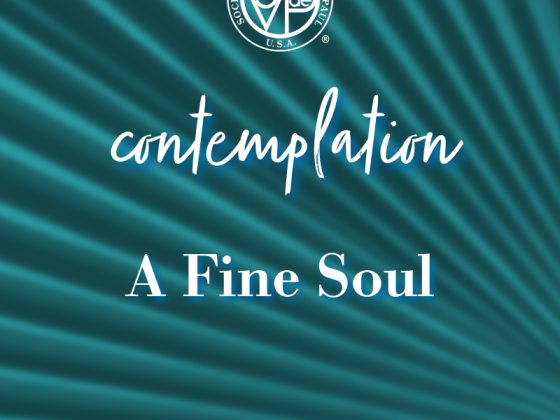In studying our own genealogy, we first catalog the names and dates and places of our ancestors. Our understanding and our love for them truly comes alive, though, when we find photographs, objects they owned, and best of all, words that they wrote. In a similar way, the portraits, relics, and words of our Vincentian saints and blessed help us to understand and fulfill our place in our shared Vincentian Family.
A treasure trove of St. Vincent’s words is contained within the fourteen(+) volume Correspondence, Conferences, and Documents, from the mundane, such a real estate transactions, to the personal, revealed in letters that were intended originally only for one recipient, to the conferences in which he gave spiritual lessons to his followers. While Vincent himself did not want his conferences recorded, designated note-takers recorded them surreptitiously anyway, realizing that the words of this holy man would feed generations who succeeded them.
Coincidentally, we also see Christ admonishing people more than once in the gospels not to tell anybody of some of His particular words or works – yet there they are, written in the gospels.
Bl. Frédéric Ozanam’s words are collected for us (in English) in a volume called A Life in Letters, with translation of more of his work currently underway. It was Frédéric who said that we owe to our patron “a two-fold devotion… imitation and invocation.” He argued that we could escape our personal imperfections “appropriating the thoughts and virtues of the saint”. [Letter 175, to Lallier, 1838]
How, after all, do we truly imitate Vincent’s example without his words, his teaching, his very personality that is visible to us in the collections of his words? Vincent’s insights were meant not only for 17th Century France, but are, as Frédéric put it, “for all lands and for all time.” [Baunard, 275]
It has often been observed that the third generation of a wealthy family is the one that tends to squander that wealth; no longer appreciating the work that it took their ancestors to earn it, they no longer are inclined to work themselves.
“The poor,” St. Vincent taught, “are our inheritance.” [Gallican Church, Vol.2, 8] Through the words preserved for us, we receive from his spiritual estate our way of seeing, serving, and loving them, so that we will be better able to pass this along to future generations of our Vincentian Family.
Contemplate
How often do I pause to study the words of our Vincentian saints and blessed?
Recommended Reading
Frédéric Ozanam, A Life in Letters Letter 90



